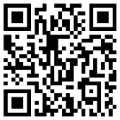Improving Knowledge Structure through Extended Scratch-Build Concept Mapping
Abstract
Full Text:
PDFReferences
T. Hirashima, "Reconstructional Concept Map: Automatic Assessment and Reciprocal reconstruction," The International Journal of Innovation, Creativity and Change (IJICC), 5 (5), 669-682, 2019.
T. Hirashima, K. Yamasaki, H. Fukuda, and H. Funaoi, "Framework of kit-build concept map for automatic diagnosis and its preliminary use," Research and Practice in Technology Enhanced Learning, 10 (1), 17, 2015.
J. D. Novak and D. B. Gowin, "Learning how to learn." New York: Cambridge University Press, 1984.
D. Foley, C. François, and J.S. Plante, "Potential of the Cogex Software Platform to Replace Logbooks in Capstone Design Projects," Advances in Engineering Education vol.6.3, pp.1-25, 2018.
B. A. Schwendimann and M. C. Linn, "Comparing two forms of concept map critique activities to facilitate knowledge integration processes in evolution education," Journal of Research in Science Teaching, 53(1), 70-94, 2016.
D. D. Prasetya, T. Widiyaningtyas, S. C. Putro, T. Hirashima, and Y. Hayashi, "Extended Scratch-Build Concept Map to Enhance Meaningful Learning," International Conference on Electrical, Electronics and Information Engineering (ICEEIE) (Vol. 6, pp. 187-191), IEEE, 2019.
R. B. Clariana, T. Engelmann, and W. Yu, "Using centrality of concept maps as a measure of problem space states in computer-supported collaborative problem solving," Educational Technology Research and Development, 61(3), 423-442, 2013.
M. A. Ruiz‐Primo, S. E. Schultz, M. Li, and R. J. Shavelson, "Comparison of the reliability and validity of scores from two concept‐mapping techniques," Journal of Research in Science Teaching: The Official Journal of the National Association for Research in Science Teaching, 38(2), 260-278, 2001.
D. D. Prasetya, T. Hirashima, and Y. Hayashi, "Study on Extended Scratch-Build Concept Map to Enhance Students' Understanding and Promote Quality of Knowledge Structure," International Journal of Advanced Computer Science and Applications (IJACSA), 11(4), 2020. http://dx.doi.org/10.14569/IJACSA.2020.0110420
T. Stoddart, "Using concept maps to assess the science understanding and language production of English language learners," Proc. of the Second Int. Conference on Concept Mapping, 606-6012, 2006.
DOI: http://dx.doi.org/10.17977/um010v3i12020p036
Refbacks
- There are currently no refbacks.
 | Letters in Information Technology Education (LITE) |

1.png)
1.png)
4.png)
1.png)
.png)
.png)

3.png)
1.png)
1.png)

3.jpg)
